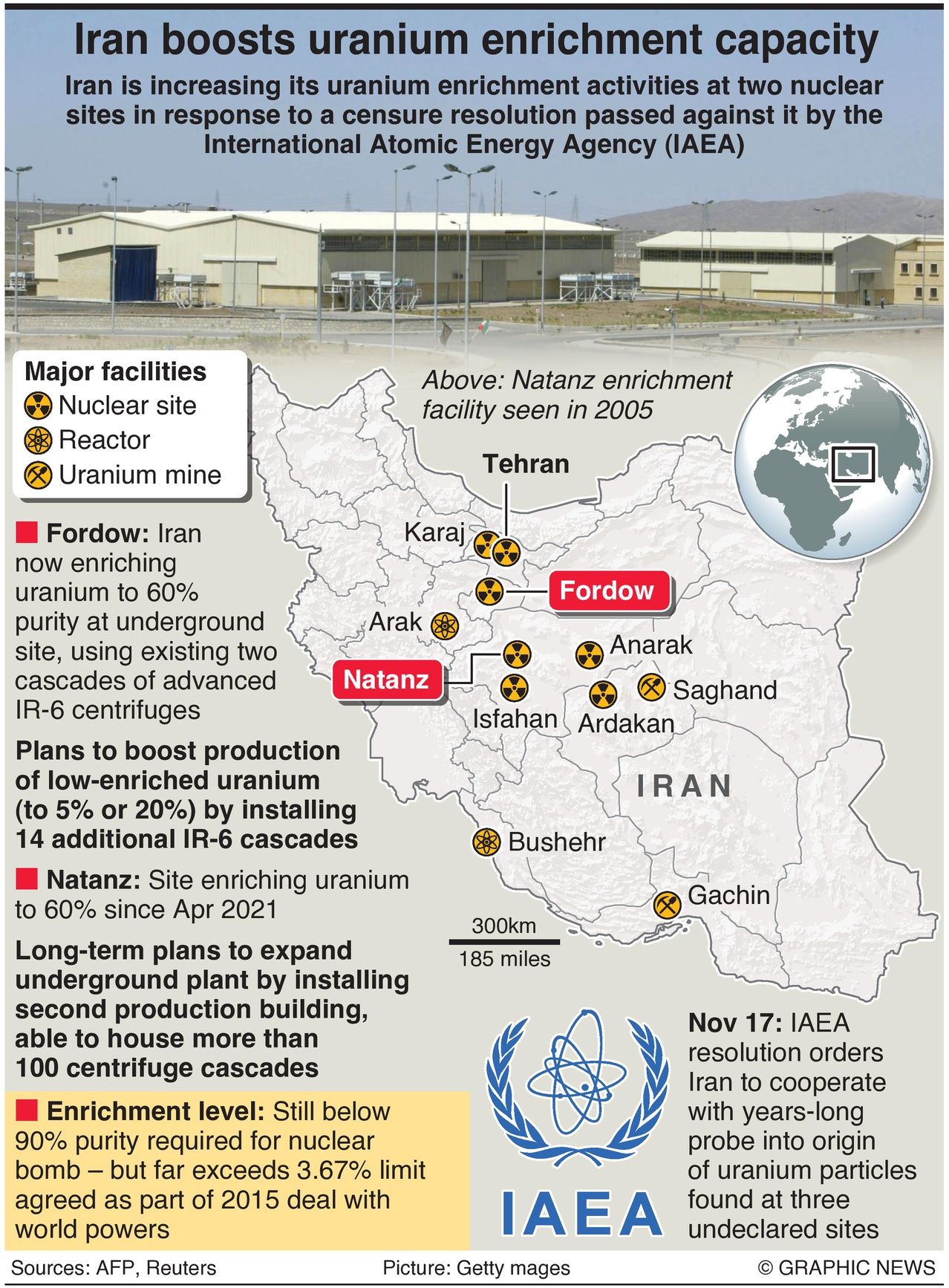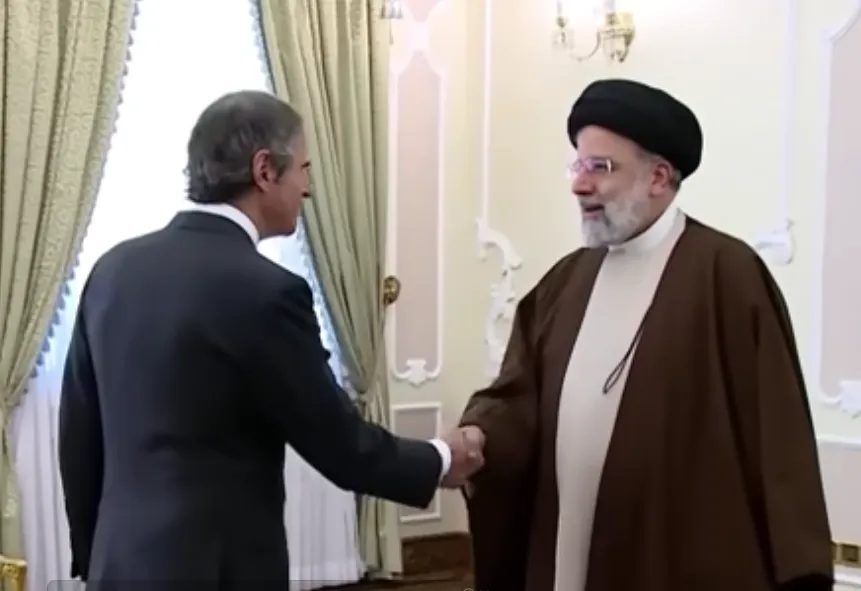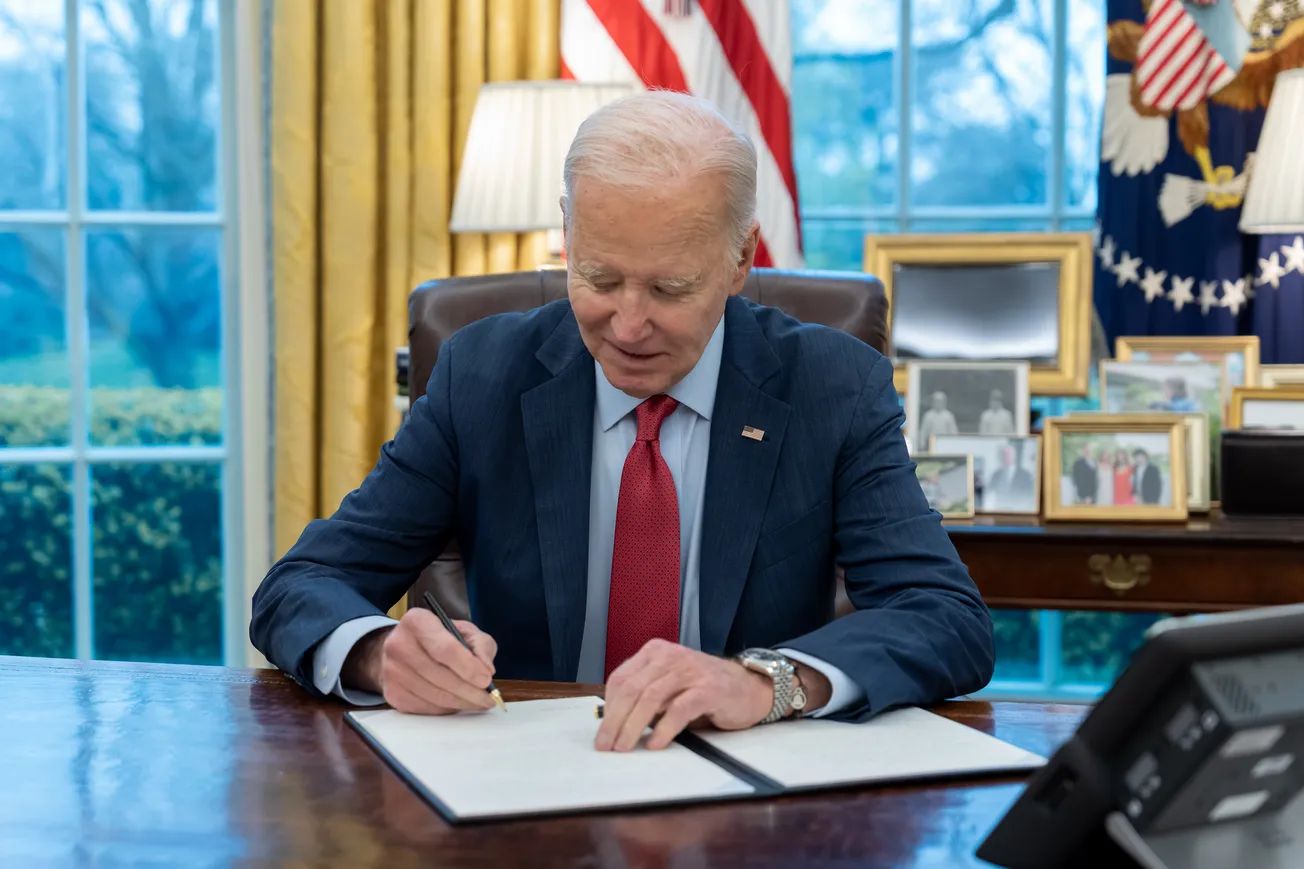Just a week ago, under Secretary of Defense for Policy, Colin Kahl said that the U.S. now believes that Iran can produce "one bomb's worth of fissile material" in "about 12 days." That is the shortest "breakout time" assessment ever put forward by the U.S. administration on Iran's nuclear capabilities.
The assessment comes after a confidential report by the International Atomic Energy Agency confirmed that uranium particles enriched to 83.7% had been found in Iran's Fordow Fuel Enrichment Plant, an underground nuclear facility. Uranium enriched to 90% is considered weapons grade. The report also states that Iran's hoard of 60% enriched uranium is now estimated to be 87.5 kilograms. That is an increase of 25.2 kg from the agency's last quarterly report.
While these reports raised the alarm and drew condemnation, a diplomatic overture may be turning the tide, though it is early days yet.
The International Atomic Energy Agency (IAEA) Director-General, Rafael Grossi, said that his two-day visit to Tehran had brought forth "concrete" commitments from the Iranian regime. He said that Tehran had agreed to more inspections and to reconnect surveillance cameras at several nuclear sites in the country.
The IEAE chief returned to Vienna after high-level meetings with senior officials, including Iran President Ebrahim Raisi, Minister of Foreign Affairs Hossein Amir-Abdollahian, and Vice-President and President of the Atomic Energy Organization of Iran (AEOI) Mohammad Eslami.
Even as many expressed reservations on whether President Raisi's government will follow through on the assurances given, Grossi asserted that beyond mere "promises," he had secured "certain agreements which are concrete."
After Washington unilaterally withdrew from the JCPOA and instituted a policy of "maximum pressure," the international agency was denied access to Iran's nuclear facilities to "monitor activities in relation to the production and inventory of centrifuges, rotors and bellows, heavy water and uranium ore concentrate (UOC)."
Grossi told the media, "Also in January at the Fordow fuel enrichment plant, we found particles of high enriched uranium with enrichment levels well beyond the enrichment level declared by Iran. The Agency and Iran have initiated technical discussions to fully clarify this issue." Iran is said to have agreed to inspections at the Fordo underground plant, where uranium particles enriched to near weapons grade were found.
The latest "concrete" assurances save Iran from another resolution criticizing the country's nuclear program at the Board of Governors meeting of the Vienna-based IAEA. Tehran's willingness to cooperate with the international body and reinstate safeguards on its nuclear programs may also help to revive the Joint Comprehensive Plan of Action (JCPOA), also known as the Iran Nuclear Deal. Should Tehran follow through and international monitoring resume, the world will have a clearer picture of what Iran has achieved since the nuclear deal breakdown.
But the assessment that Tehran is mere days away from a nuclear weapon has rattled one of the nation's foes – Israel, a country it does not share geographical borders with. Prime Minister Benjamin Netanyahu has made no secret that Iran's nuclear power ambitions are unacceptable and considers a nuclear-powered Iran an "existential threat."
Israel has a history of conducting preemptive strikes on nuclear facilities in countries it perceives as threatening its national security. In 1981, Israeli warplanes destroyed the Osirak nuclear reactor in Iraq. Tel Aviv, a nuclear power in its own right, has been accused of carrying out similar strikes in other countries, including Iran and Syria. In 2007, Israeli warplanes allegedly bombed a nuclear reactor in Syria that was being constructed with North Korean assistance. More recently, Israel has been accused of several attacks on Iranian nuclear facilities, including a 2021 attack on the Natanz nuclear facility.
Israel's actions have drawn international criticism, even as Prime Minister Netanyahu maintains that it is well within his country's right to pre-empt an attack. But, Israel's history of cross-border strikes prompted Grossi to caution, "International law from the Geneva Protocols in 1949 and thereafter and several resolutions of the general conference of the IAEA: attacks on nuclear facilities are illegal, are a violation of the UN Charter."
The covert hostilities between Iran and Israel go back decades. Many fear that matters may come to a head if Iran achieves nuclear weapon capability. With the U.S. embroiled in saving Ukraine from Russia, it is unlikely that Israel would get much support from the Biden administration for an open war. Plus, the dynamics in the region are too fragile and dependent on multiple factors to predict how events may shape up.
Israel-Arab world relations are complicated. Tel Aviv has normalized diplomatic relations with some Arab countries, including the United Arab Emirates, Bahrain, Sudan, and Chad. But, some Arab countries still do not recognize Israel's right to exist. Support for Palestine is strong among Muslim nations.
Iran, too, has complicated relations in the region. While many Arab nations condemn Iran's nuclear pursuits, some have accused it of meddling in their domestic affairs and inciting factional fighting. Despite the tensions, Tehran does enjoy historical ties with the Arab world. Another Tehran ally, Russia, has grown closer after Iran refused to condemn Moscow's war against Ukraine. Iran has provided the Russian army with kamikaze drones that explode on impact in the Ukraine war theatre. There are reports that Russia may supply arms to Iran and help Tehran pursue its nuclear ambitions.
Grossi commented that he is always committed to finding diplomatic solutions over military ones is heartening. The world cannot afford another war, especially not one with nuclear weapons in the fray. For the sake of peace, let us hope Grossi's endeavors bear fruit.
Related:







